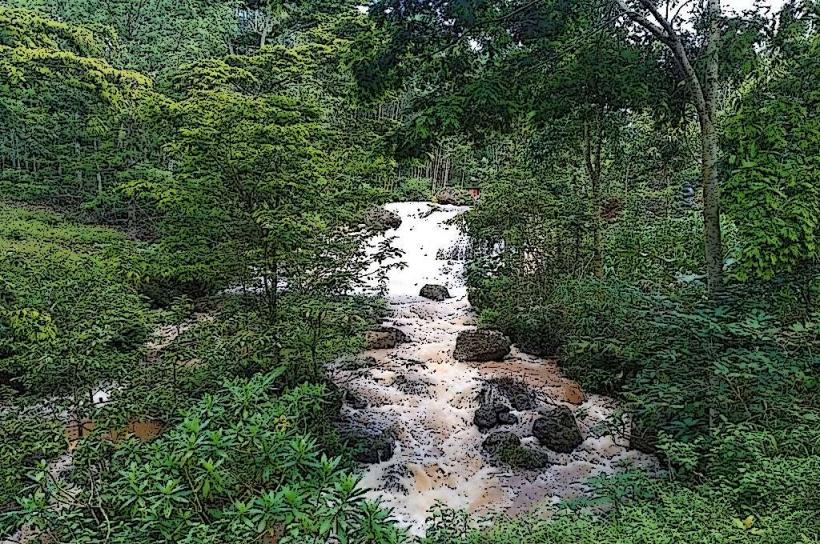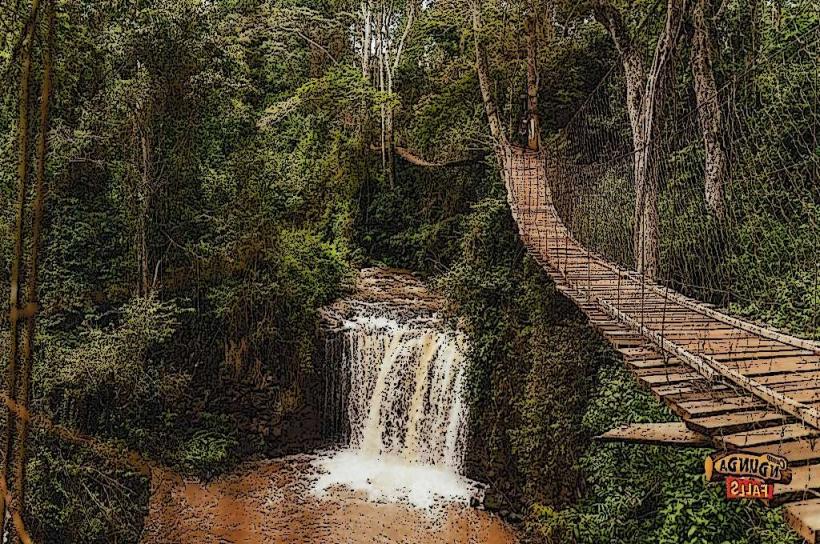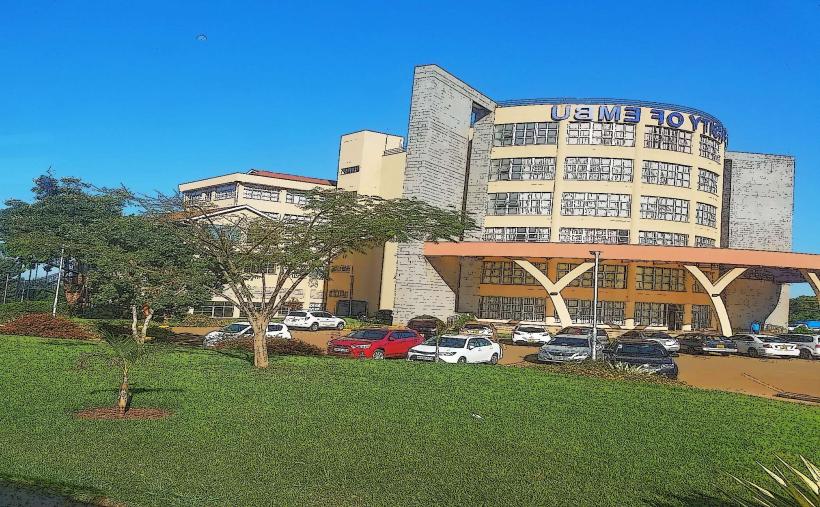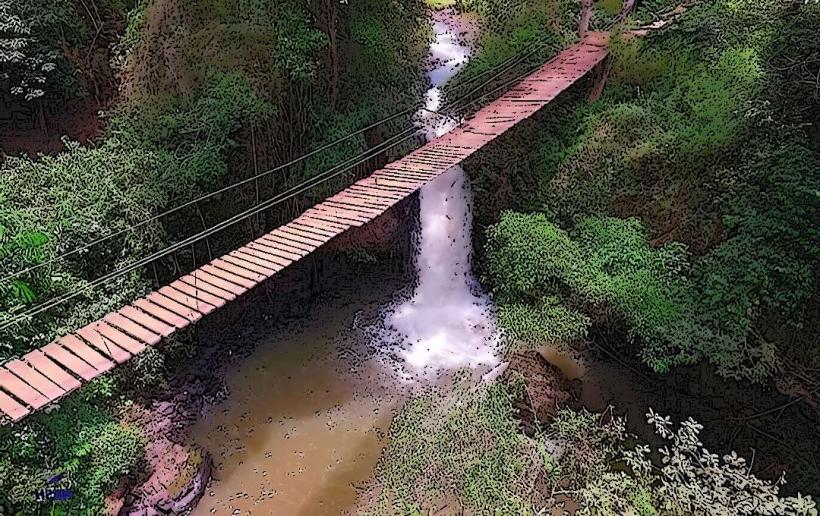Information
Landmark: Njukiri ForestCity: Embu
Country: Kenya
Continent: Africa
Njukiri Forest, Embu, Kenya, Africa
Njukiri Forest is located in Embu County, at the foothills of Mount Kenya, offering a unique blend of natural beauty, diverse wildlife, and an enriching cultural experience. The forest is not only significant for its ecological role but also as a popular destination for adventure seekers and those looking to explore the area’s historical and natural assets.
Ecological Significance
Njukiri Forest plays an essential role in the region’s ecosystem. As a water catchment area, it feeds into various rivers that flow through the region, including the Rupingazi River. The forest provides vital water sources for both domestic and agricultural use in the surrounding areas.
Flora: The forest is predominantly covered by indigenous tree species, including the Meru Oak and Mutikani, which are native to this region. These trees are crucial for maintaining the forest’s biodiversity and ecological balance. The forest also supports a variety of plant species that contribute to local medicine, as well as being home to numerous endemic plants.
Fauna: The forest is a haven for wildlife, including various bird species, butterflies, and smaller mammals. Its dense undergrowth and mature tree cover provide shelter and food sources for these animals. The area’s richness in biodiversity makes it a popular spot for eco-tourism and nature-based studies.
Outdoor Activities and Adventure
One of the standout features of Njukiri Forest is the adventure activities available for visitors:
Hiking: The forest offers various trails for hiking, with paths winding through its rich vegetation and leading to scenic viewpoints. Hikers can explore the diverse ecosystems within the forest, ranging from indigenous trees to the more open areas closer to the water bodies.
Camp Ndunda Falls: Located within the forest, Camp Ndunda Falls is a popular eco-tourism site that offers visitors an immersive nature experience. The camp provides opportunities for:
Canopy walks: A thrilling way to experience the forest from above and view its diverse wildlife from a different perspective.
Ziplining: For the adrenaline-seeker, ziplining through the canopy offers an exciting way to engage with the environment.
Archery: A fun activity for groups and families, providing a chance to test your accuracy and enjoy the outdoors in a more interactive way.
Swimming: The area around the waterfalls features natural pools where visitors can swim and relax, especially refreshing after a hike.
Cultural Huts and Accommodation: Camp Ndunda Falls offers various accommodation options, ranging from traditional cultural huts and teepees to more modern cabins and camping sites. The accommodations are designed to provide a comfortable yet rustic experience, with some facilities offering a chance to experience the cultural heritage of the local people.
Historical and Cultural Significance
Njukiri Forest holds historical value, particularly as a traditional site for the Embu community. The forest is not only a source of natural resources but also a place where local cultural practices are passed down through generations.
Cultural Activities: Local guides often share insights into the community’s traditions, including their use of forest resources for medicinal purposes, ceremonies, and rituals.
Access and Location
Location: Njukiri Forest is located about 6 km from Embu Town, easily accessible by road. It is a 2-hour drive from Nairobi, making it an ideal weekend getaway or day trip.
Directions: From Embu Referral Hospital, take a left turn toward Kibugu Road. Follow the road for about 6 km until you reach Camp Ndunda Falls at the forest's northeastern edge. The drive is relatively smooth, and the area is well-marked for visitors.
Best Time to Visit
The best time to visit Njukiri Forest is during the dry season, typically between June and October, when the hiking trails are more accessible and the weather is generally favorable. The waterfalls are also at their best during this time, as the flow of water remains steady.
Nearby Attractions
Mount Kenya: The forest lies near the eastern base of Mount Kenya, so visitors can also plan excursions to nearby Mount Kenya National Park, which offers hiking, camping, and exploration of the mountain’s flora and fauna.
Ndunda Falls: Located near the forest, the Ndunda Falls are a beautiful set of cascading waterfalls that are a highlight of the region, providing both a scenic and relaxing spot to visit.
Kirimiri Forest: If you are looking for more adventure or biodiversity exploration, Kirimiri Forest is nearby and offers more hiking trails, waterfalls, and cultural sites tied to the Mau Mau era.
Accommodation Options
While Njukiri Forest itself offers camping and basic accommodation at Camp Ndunda Falls, there are also other options in the surrounding areas:
Camp Ndunda Falls: Offers cultural huts, cabins, and camping sites.
Local Hotels in Embu: For those looking for more conventional hotel stays, Embu Town has several guesthouses and lodges catering to various budgets.
Conclusion
Njukiri Forest is an ideal destination for those looking to connect with nature, hike through lush forests, and explore the historical and cultural richness of the region. Whether you're seeking adventure with activities like zip-lining and hiking, or simply want to unwind amidst the beauty of nature, Njukiri Forest offers something for everyone.





